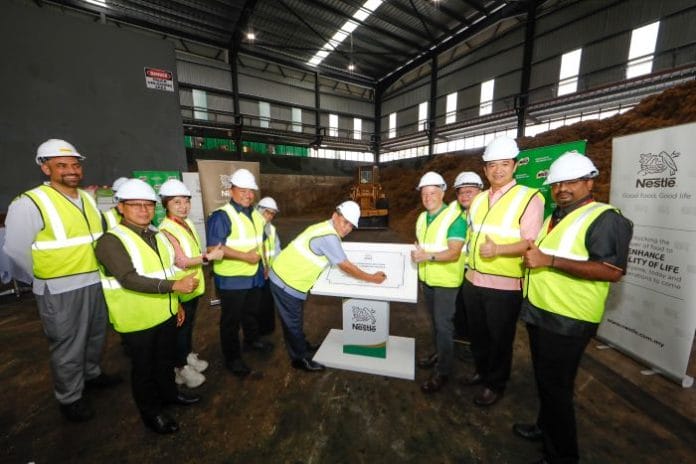Nestle Malaysia has started operation of a biomass boiler servicing the needs of its Chembong Factory in Rembau, Negeri Sembilan as part of its carbon footprint reduction initiative.
Established in 1993 and expanded in 2019 to meet growing local and regional demand, the Chembong Factory is Nestlé’s largest MILO plant in the world. With a 100% Malaysian manufacturing workforce it, is also an important production centre for other key brands such as KIT KAT, NESTLÉ ICE CREAM and KOKO KRUNCH.
The biomass boiler has started operations at the end of 2023 at the Chembong Factory and utilises oil palm Empty Fruit Bunches (EFB) and palm kernel shell as renewable energy sources. It replaces fossil fuels to generate steam used for heating processes in its manufacturing operations. This approach is part of a natural carbon cycle and does no contribute to long-term carbon emissions, making it carbon neutral. The solution reduces net CO2 emissions compared to fossil fuels and it also aids in the reduction of other greenhouse gases. It is projected to significantly decrease the factory’s greenhouse gas emissions by 14,000 tonnes of CO2e annually, while simultaneous minimising pollution, reducing landfill waste, and preserving valuable natural resources.
The biomass boiler was developed and installed by technology partner ENCO Systems Sdn Bhd, a total boiler solutions provider, entailing an investment of RM18 million.









